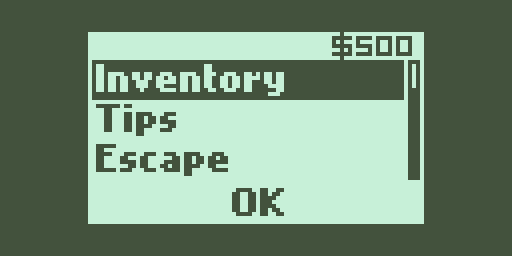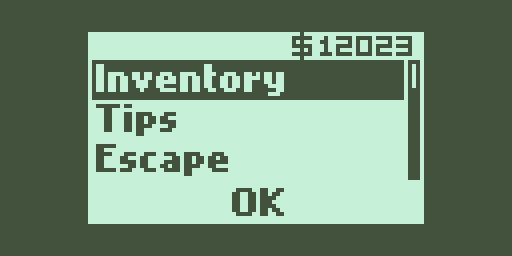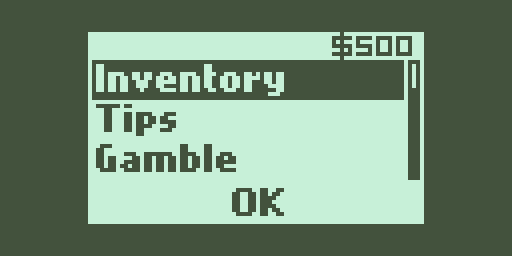Day 2:
I've added a dynamic economy. The implementation is pretty simple: each commodity you can trade has a table with prices for five levels of demand: Very low, Low, Medium, High, and Very High. Every location has their own demand level for each commodity, and on each turn the demand for a few commodities in a few locations will be shifted. Thus, commodities have recognizable "good prices" and "bad prices" (once you get a feel for it), some are inherently higher-margin than others, and areas have demands which are predictable enough to plan around, but varied over time and between games.
To help plan your next turn, you can buy information from informants for a small fee:

There's no guarantee that a hint will be very useful to capitalize upon, though. There's also a chance that the informant in one location might (consistently) be a liar! If you get bad information, I hope you remember who told you!
After actually playing for a while, I slightly redesigned the "buy quantity" display- now it shows both the total price and the number of items you're purchasing in a batch. I now consistently use "x" as a prefix in menus (like "x32") to indicate a quantity, and "$" as a prefix to indicate price.
It's now possible to end the game (this will be more of a strategic choice when everything else is finished):

Perhaps you'll find the casino and have a few rounds of Blackjack:

...hopefully getting luckier than I did.
Overall, still bare-bones, but it now resembles a playable game. Next, I need to implement a system for overall story progression within the city, in the form of semi-randomized interstitial events between turns, and a few more special features for certain areas of the city.

